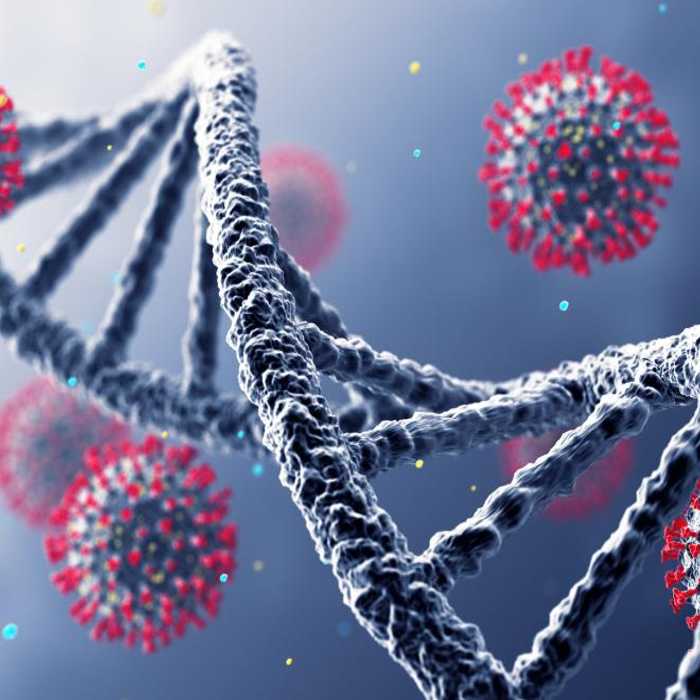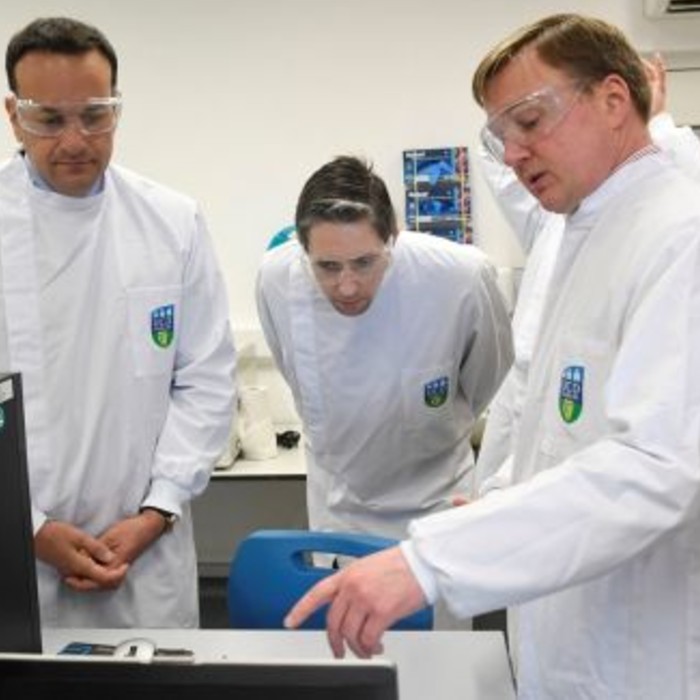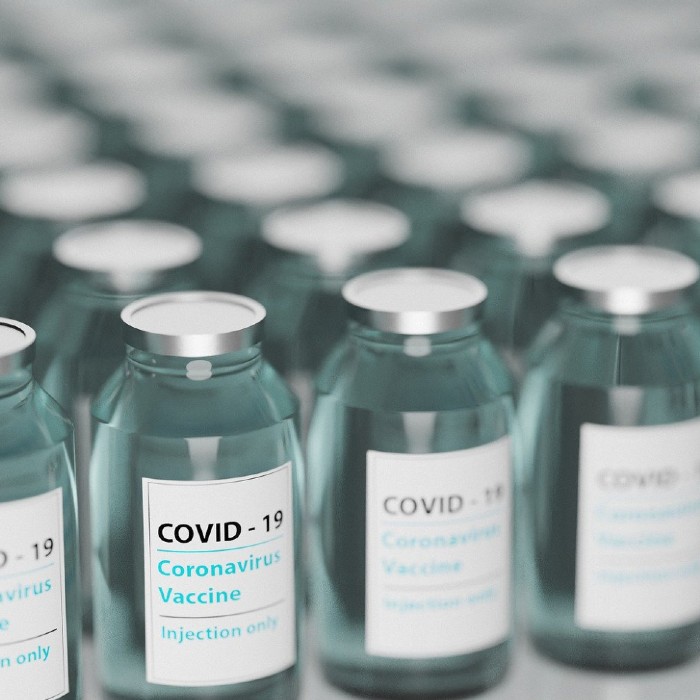The COCOON study: Covid-19 coagulopathy and thrombosis: Novel prognostic and therapeutic opportunities
Lead Researcher: Dr Barry Kevane, Consultant Haematologist at Mater Misericordiae University Hospital (MMUH), UCD Conway Institute of Biomolecular and Biomedical Research and UCD School of Medicine.
Collaborators: In this multi-disciplinary clinical and translational research study, Dr Kevane will work with key collaborators Professor Patricia Maguire and Professor Fionnuala Ni Ainle, co-directors of the UCD Conway SPHERE research group, as well as senior clinicians in Infectious Diseases, Critical Care Medicine and Acute Medicine.
Funder: Science Foundation Ireland/Enterprise Ireland/IDA Ireland joint Covid-19 Rapid Response Fund
Funded under the joint SFI-EI-IDA Rapid Response fund, the Cocoon Study is an international project examining blood coagulation in covid patients and its interplay with inflammation. The study aims to address urgent clinical dilemmas and to develop novel solutions for existing diagnostic and therapeutic challenges.
Using advanced Artificial Intelligence and Genomics technologies, the project will deliver enhanced thrombotic prevention strategies and a rapid diagnostic platform for personalised risk assessment.
Problem solving
Haemostatic malfunctions are major contributors to morbidity in Covid-19. However, the underlying molecular mechanisms are poorly understood and our ability to address the associated clinical risk or identify therapeutic opportunities is compromised. The project aims to answer the following questions:
1. What is the optimal strategy to prevent thrombosis in Covid-19?
The use of anti-thrombotics for venous thromboembolism (VTE) prevention is supported by high-quality data. However, in Covid-19, rates of potentially fatal VTE are unexpectedly high and markers of coagulation activation are increased. This has led to debate among thrombosis experts as to whether an intensification in thrombosis prevention strategies are urgently required (this would increase bleeding risk). Moreover, as the underlying cause of Covid-associated hypercoagulability is poorly understood, it is unclear if the addition of supplemental therapy or an escalation of existing therapy is the most effective option.
2. Can we refine prediction of patients’ outcomes?
D-dimer level, a non-specific marker of coagulation activation, has been incorporated into prognostic algorithms for Covid-19 (reflecting the important interplay between coagulation and inflammation). However, the specificity of D-dimer is limited and cannot be considered as providing definitive or detailed evidence of the degree of hypercoagulability/inflammation – and reliable biomarkers of this hypercoagulability-inflammatory axis are needed.
3. Could anti-thrombotics represent a novel therapy?
Anti-thrombotic therapy can exhibit anti-inflammatory effects and heparin has been reported to confer a survival benefit in Covid-19. Whether heparin mediates anti-inflammatory properties in Covid-19 independent of anti-thrombotic effects are unknown but this could represent a potential novel therapy, provided the associated bleeding risk could be addressed.
What will the research project do?
Dr Kevane will work with clinical and scientific stakeholders to develop a new platform that will evaluate novel diagnostics and treatment options in Covid-19, with a focus on Covid-19 associated thrombosis.
The team aims to characterise the mechanisms driving hypercoagulability in Covid-19 and determine whether current standard thrombosis prevention measures sufficiently attenuate Covid-19 hypercoagulability. Achieving these aims will address the controversy surrounding optimal dosing of anti-thrombotics in Covid-19 and will also determine if other means of thrombosis prevention (such as anti-platelet therapy) may be of benefit.
Advanced proteomic analysis of plasma samples taken from across the spectrum of severity of infection will permit the identification of novel biomarkers which will be of superior specificity in comparison to existing markers (e.g. D-dimer). This will address the current limitations in this regard.
In particular, analysis of platelet releasate (PR) in Covid-19 is predicted to yield valuable data – the UCD Conway SPHERE team have previously demonstrated that the proteomic signature of the PR is highly conserved among healthy individuals but can act as a ‘barcode for disease’ in multiple pathological states.
The team will also investigate the properties of anticoagulant medication Low-Molecular-Weight Heparin (LMWH) in opposing Covid-19 induced endothelial dysfunction in vitro.
Moreover, they will investigate the relative cytoprotective/anticoagulant properties of non-commercial sub-fractions of LMWH – and have previously published data pertaining to the use of similar heparin fractions in related disorders, and have filed a patent regarding the research.
Research Impact
Addressing the knowledge gap relating to thrombosis prevention in Covid-19 would be of immediate clinical benefit and would translate into either supporting current management or confirming that current strategies are inadequate (which would prompt immediate investigation of alternatives and provide a basis for a clinical trial).
Through the team’s leading roles in both the INViTE network (Irish Network for VTE research) and the International Network of Venous Thromboembolism Clinical Research Networks (INVENT-VTE) (and through collaborating with National Infectious Disease and Critical Care Networks), they are uniquely placed to ensure that their findings will be rapidly disseminated and translated into clinical studies resulting in a tangible benefit for Covid-19 patients.
Identifying novel biomarkers for disease and in particular identifying biomarkers which are predictive of severe illness would facilitate a more accurate risk stratification of patients, potentially identifying patients who may require earlier critical care support.
Further to recent data reporting a survival benefit associated with heparin in Covid-19 and considering the known anti-inflammatory properties of heparin, the identification of fractions within existing commercial heparin formulations with optimised cytoprotective/anticoagulant activity could lead to a novel supplemental therapeutic option in cases of Covid-associated Acute Respiratory Distress Syndrome (ARDS).
This novel and disruptive approach to risk stratification will arm clinicians with an affordable tool to channel resources appropriately and prevent unnecessary adverse outcomes through prevention of thrombotic complications. In collaboration with their international partners, the researchers believe that their approach will rapidly shape international clinical practice.
Project Partners
Professor Fionnuala Ní Áinle, MMUH, UCD School of Medicine and UCD ConwaySPHERE Research Group
Professor Patricia Maguire, UCD School of Biomolecular and Biomedical Science and UCD, ConwaySPHERE Research Group
Professor Paddy Mallon, Dept of Infectious Diseases, St Vincent’s University Hospital (SVUH), UCD Centre for Pathogen Host Research and UCD School of Medicine
Professor Saskia Middeldorp, Academic Medical Centre, Amsterdam
Dr Aoife Cotter, Dept of Infectious Diseases MMUH and UCD School of Medicine
Professor Jack Lambert, Dept of Infectious Diseases MMUH and UCD School of Medicine
Dr Gerard Sheehan, Dept of Infectious Diseases MMUH and UCD School of Medicine
Professor Brian Marsh, Dept of Critical Care Medicine MMUH and UCD School of Medicine
Professor Andrea Cossarizza, Dept of Pathology, Immunology & Clinical Immunology, University of Modena and Reggio Emilia, Italy
Dr Ignacio Martin-Loeches, Dept of Intensive Care Medicine, St James’s Hospital and Trinity College School of Medicine
Dr Tara McGinty, Dept of Infectious Diseases MMUH and UCD School of Medicine
Associate Professor Alfonso Blanco, UCD Conway Institute
Dr Katherine O’Reilly, Dept of Acute Medicine/Respiratory Medicine MMUH and UCD School of Medicine
Professor Cliona Ní Cheallaigh, Dept of Infectious Diseases/Director of Inclusion Medicine, St James’s Hospital and Trinity College School of Medicine
Professor Peter McMahon, Dept. of Radiology MMUH and UCD School of Medicine
Professor Leo Lawler, Dept. of Radiology MMUH and UCD School of Medicine
Dr Rachel Rosovsky, Massachusetts General Hospital and Harvard Medical School
Dr Karen Schreiber, Dept of Rheumatology, Copenhagen University Hospital
Professor Sean Gaine, Dept of Respiratory Medicine MMUH and UCD School of Medicine
Dr Dermot O’Callaghan, Dept of Respiratory Medicine MMUH
Dr Tomas Breslin, Dept of Emergency Medicine MMUH and UCD School of Medicine
Dr Cian McDermott, Dept of Emergency Medicine MMUH and UCD School of Medicine
Dr Robert Turner, Dept of Critical Care Medicine MMUH and UCD School of Medicine
Associate Professor Siobhán McClean, UCD School of Biomolecular and Biomedical Science and UCD Conway Institute
Dr Jennifer Donnelly, Consultant Obstetrician and Subspecialist in Maternal-Fetal Medicine, Rotunda Hospital
Professor Mary Higgins, Consultant Obstetrician and Subspecialist in Maternal-Fetal Medicine, National Maternity Hospital
Ms Annemarie O’Neill, Founder, Thrombosis Ireland Patient Organization
Mr John Curran, Head of Technology, SAS® Ireland


